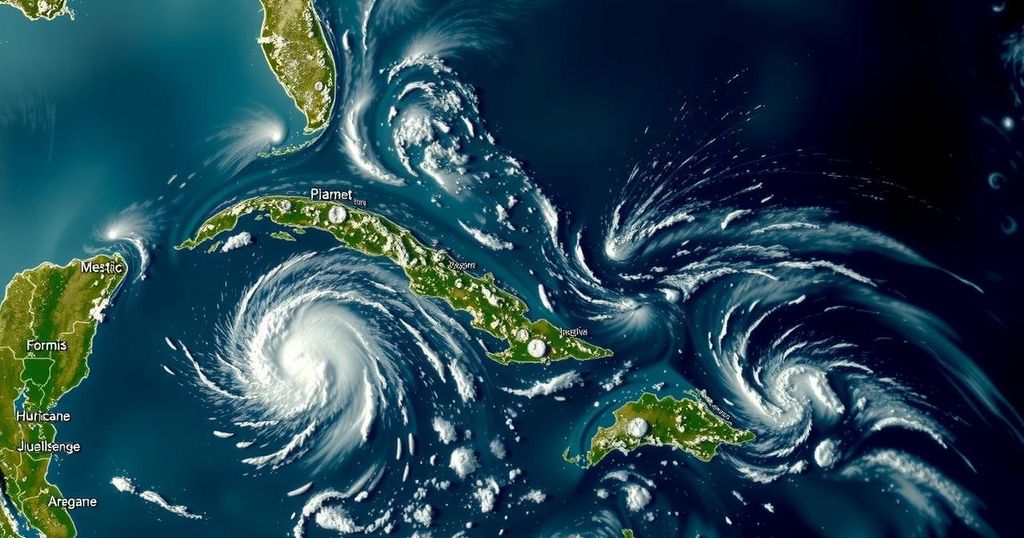The 2024 Atlantic hurricane season ended with 11 hurricanes and substantial destruction, notably Hurricane Helene, which was the deadliest storm since 2005, and Hurricane Milton, which recorded winds of 180 mph. The season was characterized by warm ocean temperatures, raising concerns about the impacts of climate change on hurricane activity.
The 2024 Atlantic hurricane season concluded on Saturday, marking an unprecedented period characterized by 11 hurricanes, surpassing the average of seven. This season inflicted extensive devastation along the U.S. Gulf Coast and beyond, resulting in significant fatalities and substantial property damage. Meteorologists described the season as exceptionally active, primarily attributed to unseasonably warm ocean temperatures that contributed to the formation and intensification of multiple storms.
Among the most significant events was Hurricane Beryl, which made history as the first Category 4 hurricane to develop in June, impacting Grenada severely and leading to casualties and property destruction in Jamaica. Additionally, the hurricane escalated to become the earliest Category 5 hurricane recorded in the Atlantic by July 1. Typically, hurricanes of this intensity are not expected until after September 1, according to the National Hurricane Center.
In September, Hurricane Helene wreaked havoc across the southeastern United States, marking the deadliest storm to affect the U.S. mainland since Hurricane Katrina in 2005, resulting in over 200 fatalities. North Carolina reported damages of at least $48.8 billion, with significant losses to infrastructure and agriculture, while other states, including Florida and Georgia, also faced extensive destruction.
October saw the emergence of Hurricane Milton, which gained strength rapidly, reaching wind speeds of up to 180 mph, thereby becoming one of the most potent hurricanes ever documented in the Gulf of Mexico. The regions impacted by Helene and Milton experienced precipitation levels tripling their typical amounts for the season, with Asheville, Tampa, and Orlando recording their wettest September and October on record.
In November, Hurricane Rafael attained speeds of 120 mph, nearing the record for the strongest November hurricane in the Gulf of Mexico, while also hampering recovery efforts in Cuba from prior storms. The pattern of this hurricane season has raised concerns regarding the correlation between climate change and the increasing frequency and severity of hurricanes.
Meteorologist Brian McNoldy stated, “I do not ever point to climate change as causing a specific weather event, but it certainly has its finger on the scale and makes these extreme storms more likely to occur.” This view underscores the growing consensus that rising ocean temperatures facilitate the development of hurricanes in both unanticipated places and times.
The Atlantic hurricane season generally runs from June 1 to November 30, with the peak period occurring from August to October. Each year, meteorologists analyze ocean temperatures, wind patterns, and atmospheric conditions to predict the potential intensity and frequency of hurricanes. The implications of climate change, particularly in terms of rising sea surface temperatures, are increasingly pertinent in weather research, suggesting a growing trend of extreme weather events, including more powerful hurricanes developing earlier and later in the season than historical averages.
In summary, the 2024 Atlantic hurricane season has been marked by an alarming increase in both the number and intensity of storms. The unprecedented events, including Hurricane Beryl’s early formation and Hurricane Helene’s catastrophic impact, highlight the growing challenges posed by climate change on weather patterns. It is crucial to continue monitoring these trends and adapt recovery and preparedness strategies accordingly to mitigate future risks.
Original Source: wsvn.com






